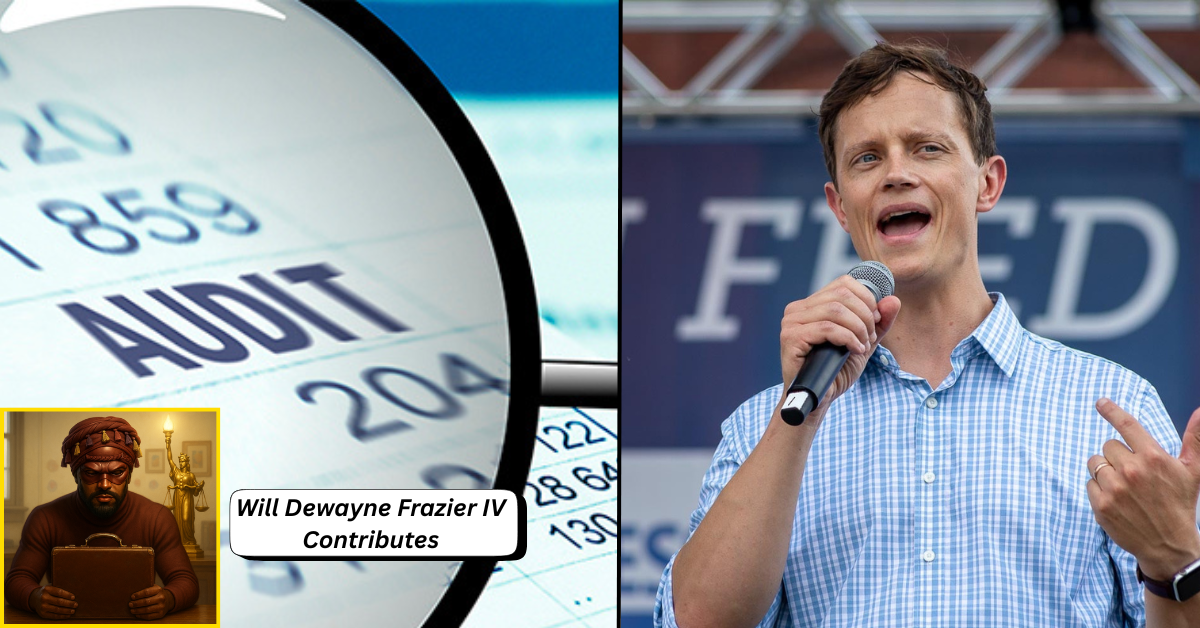Politics
Chelsea Manning Russian Spy? Democrats Can’t Get It Straight.
Published
8 years agoon

(Via Zerohedge)
Within hours of young trans woman whistleblower Chelsea Manning announcing her run for Senate against Benjamin Cardin, a 74-year-old white, straight man, establishment Democrats wasted no time in mocking and denouncing her bid, even embarrassing themselves by proclaiming it a Kremlin-engineered plot.
Anti-Russia conspiracy theorists have developed another outlandish claim, stating that Moscow is behind Chelsea Manning’s Senate bid, since she’s taking on an incumbent who is against so-called “Russian aggression.”
Manning says she’s running because “we need someone willing to fight… we need to stop expecting that our systems will somehow fix themselves.”
But, as RT notes, that reason seems too straightforward for those who apparently believe that everything related to US politics is somehow tied to Russia.
Taking to Twitter on Saturday, foreign policy and strategy consultant Molly McKew called Manning’s decision to run “a little too convenient,” noting that she is running against Senator Ben Cardin, who is “one of [the] most active senators on foreign policy and [a] leader in making policy/legislation to respond to Russian aggression.”
In a separate tweet, RT reports that she referenced Manning’s whistleblowing and the apparent motive behind it. “The agent of a foreign power coerced this individual, leveraging their emotional distress, into breaking their oath to the country and disclosing classified secrets.”
If McKew’s remarks seem hard to comprehend, that’s perfectly understandable. If you need them to be interpreted, it all boils down to the same old line: Russia did it. That’s right. Russia is responsible for Manning’s whistleblowing, and Russia is somehow behind her decision to run for office.
Her statements were called out by The Intercept’s Glenn Greenwald, the journalist who helped make Edward Snowden’s whistleblowing a reality. “One of the media’s favorite Russia-obsessed ‘experts’ didn’t even wait an hour before depicting Chelsea Manning’s Senate candidacy as a dastardly Kremlin plot,” he tweeted. He went on to call out the “demonstrable, obvious falsehoods about Manning’s motives & WikiLeaks’ role” which McKew wrote about in her second tweet.
But McKew isn’t alone in her bold statements. A person by the name of Josh Manning, whose Twitter account says he is a civil rights investigator and something to do with “Army intel,” seems to believe the same.
“Senator Cardin authored and released a 200-page masterpiece on Russian influence in western elections. Suddenly he has a primary from Kremlin stooge Assange’s Wikileaks primary source Chelsea Manning. The Kremlin plays the extreme left to swing elections. Remember that,” he wrote.
Greenwald also chimed in on Josh Manning’s tweet. “Oh my God: This is how deranged official Washington is. The president of the largest Dem Party think-tank (funded in part by dictators) genuinely believes Chelsea Manning’s candidacy is a Kremlin plot. Conspiracy theorists thrive more in mainstream DC than on internet fringes.”
We leave it up to the exquisitely mocking words of Greenwald to conclude:
This conspiracy theory mocks itself.
The idea that Vladimir Putin sat in the Kremlin, steaming over Benjamin Cardin’s report on Russia, and thus developed a dastardly plot to rid himself of his daunting Maryland nemesis – “I know how to get rid of Cardin: I’ll have a trans woman who was convicted of felony leaking run against him!” – is too inane to merit any additional ridicule.
But this is the climate in Washington: no conspiracy theory is too moronic, too demented, too self-evidently laughable to disqualify its advocates from being taken seriously – as long as it involves accusations that someone is a covert tool of the Kremlin.
Well said.
Iowa
Breaking the Cycle: Linn County Mother Takes Her Fight From Iowa DHS to Washington, D.C.
Published
1 week agoon
November 19, 2025
Linn County, Iowa — In a case that has already raised red flags for judicial conduct, DHS contradictions, and violations of federal sibling-preservation laws, one mother is now taking her fight far beyond the courtroom.
For Kristin Mitchell, the system that once separated her from her siblings as a child is now repeating the same trauma with her son WG, who was adopted through Iowa DHS, later removed from that adoptive home after abuse, and is now facing yet another rushed adoption while Mitchell appeals at multiple levels.
“I experienced harm in foster care as a child — and now my own child is living the same trauma,” she said.
Her intervention hearing in Linn County left her with more questions than answers. DHS issued her a Family Notice legally recognizing her as a qualifying relative. But in court, the agency reversed itself, and the judge denied her motion to intervene.
Not a single safety concern was presented about her home. The State called just one witness — the same DHS worker who separated Mitchell from her siblings decades ago.
“Nobody named a single safety concern. Not one reason why my home would not be good for WG.”
When evidence later surfaced showing the presiding judge and DHS workers viewed Mitchell’s private Facebook stories during deliberation — and the judge’s account disappeared shortly after — her concerns about impartiality only grew.
So Mitchell did something few parents in child welfare cases ever do.
She took the fight to Washington, D.C.
A Journey From Linn County to Capitol Hill
During the trip, Senator Mark Finchem conducted a full sit-down interview with activist and FJAA author Francesca Amato at the B&B where the team stayed. Kristin and her son were present throughout the discussion, had the chance to ask their own questions, and captured photos with the Senator during the extended conversation.

Mitchell traveled with a coalition led by Francesca Amato, author of the Family Justice and Accountability Act (FJAA). Their goal: secure bipartisan support for sweeping national reform.
“We came with purpose,” Mitchell said. “Our team met with 10 senators or congressmembers — some meetings went over two hours.”
She visited offices across Capitol Hill. Her youngest son made popcorn and played with tractors in Senator Joni Ernst’s office. She took photos with Arizona Senator Mark Finchem. Congressional staff, she said, treated her evidence with seriousness and gravity.
“They listened closely. They took notes. They understood that what is happening in Iowa is part of a national pattern.”
Mitchell wasn’t just representing her own experience. She brought with her 27 credible stories from Linn County families, many describing similar systemic violations: retaliation, ADA discrimination, sibling separations, and rushed removals.
“The gap between federal foster-care standards and what’s happening in Linn County is enormous,” she said.
A Moment of Precise National Timing
EXECUTIVE ORDER:
— First Lady Melania Trump (@FLOTUS) November 17, 2025
FOSTERING THE FUTURE FOR AMERICAN CHILDREN AND FAMILIES pic.twitter.com/Lk84KGmeBV
The same week Mitchell walked the halls of Congress advocating for reform, Donald Trump and Melania Trump signed a foster-care–related federal law.
“When I learned they signed that law while I was in D.C., I honestly felt it was no coincidence,” she said.
“It was incredibly validating. It gave me hope.”
She believes the synchronization signals something larger:
“Our voices are finally reaching national leaders.”
The Push for Accountability
Mitchell delivered a clear message to federal officials: the Family Justice and Accountability Act is not about creating new rights — it is about enforcing rights the system already violates.
“I told them the FJAA is about accountability,” she said. “About enforcing constitutional rights, civil rights, human rights, and ADA protections.”
She also stressed the urgency of stopping rushed adoptions.
“I have appeals at multiple levels. And yet WG is being pushed toward another adoption before my appeals are decided. That is why this cannot wait.”
Her personal history magnified her purpose.
“I lived through sibling separation as a child. I know what it does to you. No child should live that twice — and that’s what’s happening to WG.”
Washington Responds
Multiple policymakers expressed interest in reviewing her documentation, obtaining evidence, and potentially examining Iowa DHS practices.
“I want to give them the space to conduct their reviews responsibly,” she said. “But yes — interest was real.”
Even the judge in her own case acknowledged she had “strong experience to speak to legislative reform,” a comment Mitchell found telling given the legal barriers she still faces in WG’s case.
The New Federal Law Sends a Message to Iowa
Mitchell believes the new foster-care law sends a direct warning to states like Iowa:
“Pretending to comply with federal mandates is no longer enough.”
She said, “Iowa has repeatedly violated the Fostering Connections Act. My case proves it. DHS recognized me as a relative in writing — then told the court I wasn’t one.”
The new law, she argues, makes one thing clear:
“The era of unaccountable child-welfare agencies is ending.”
A Call to Other Iowa Families
As she continues her appeals — including exploring whether to overturn the original termination of rights, which the court stated was “not strictly necessary” — Mitchell is turning outward and calling on other survivors to come forward.
“If you’re in Iowa and you’ve been harmed by DHS, I want you to contact me.”
She emphasized that many families remain isolated or silenced, and she wants them to know there are safe channels and advocates ready to support them.
What Comes Next
Mitchell is now working with local lawmakers to bring Iowa into full compliance with federal law. The FJAA author is also preparing portions of the bill for a potential executive order, which could activate protections more quickly nationwide.
“Our movement is gaining momentum,” Mitchell said.
“And we’re not stopping until every child is protected from the trauma the system has allowed for far too long.”
From the courtrooms of Linn County to the halls of Congress, Mitchell’s fight now sits at the center of a growing national reckoning over child welfare, accountability, and the long-overlooked rights of siblings.
Groyper
Nick Fuentes and Tucker Carlson Expose ‘Israel First’ Extremists in MAGA
Published
2 weeks agoon
November 11, 2025
In a seismic two-hour conversation that has ripped the conservative movement wide open, Tucker Carlson sat down with far-right firebrand Nick Fuentes on October 28, 2025, and what emerged wasn’t just a podcast episode—it was a reckoning. The interview, which rocketed to the fourth most-viewed video in Carlson’s post-Fox catalog, didn’t merely platform a controversial figure; it exposed the festering rift between genuine America First patriots and the neoconservative “Israel First” faction that’s been masquerading as MAGA for far too long.
Fuentes, the 27-year-old provocateur whose “Groyper” army has long challenged the GOP’s sacred cows, didn’t hold back. He eviscerated U.S. foreign policy as a “suicide pact” driven by Zionist lobbies that prioritize Tel Aviv over Toledo. Carlson, no stranger to bucking the establishment, nodded along, calling endless aid to Israel “insane” and questioning why American blood and treasure are funneled into a foreign war while our borders bleed. This wasn’t fringe talk; it was a mirror held up to the MAGA base, revealing how a vocal minority—think Heritage Foundation president Kevin Roberts defending Carlson amid backlash—has been hijacked by interventionists who wrap endless wars in the flag of evangelical Zionism.
The fallout was swift and savage. PBS labeled it a “rift among Republicans,” with a task force on antisemitism severing ties with Heritage over the scandal. NPR chronicled how isolationism and creeping antisemitism are eroding conservative support for Israel, once a bedrock of the movement. Even within MAGA, the knives came out: Ted Cruz and Josh Hammer decried Carlson’s platforming as normalizing extremism, while Fuentes’ defenders accused the critics of being “Zionist agents.”
At its core, this interview peeled back the layers of a movement Trump built on “America First”—no more forever wars, no more blank checks for allies. Yet, as Fuentes hammered home, neocons like those at the Daily Wire have turned MAGA into a Trojan horse for Israeli interests. Carlson’s agreement that “neoconservative policies harm America” struck a nerve because it’s true: billions in aid, vetoes at the UN, and now whispers of U.S. troops in Gaza—all while veterans sleep on streets and fentanyl floods our cities.
This isn’t about hate—it’s about priorities. Trump won by promising to drain the swamp, not refill it with Tel Aviv lobbyists. The Fuentes interview has forced MAGA to choose: Do we stand for American workers, secure borders, and fiscal sanity, or do we bow to foreign gods? Carlson and Fuentes may not be saints, but they’ve done the movement a favor by naming the elephant in the room. The “Israel First” crowd’s days of puppeteering from the shadows are numbered. America First isn’t negotiable—it’s the soul of MAGA. And it’s roaring back.

In the rolling farmlands of central Iowa, where community trust is the glue holding small towns together, a routine financial review has exposed a web of overpayments and oversight lapses that cost taxpayers nearly $90,000. On Thursday, November 6, Iowa State Auditor Rob Sand released a scathing special investigation into the City of Baxter, revealing improper disbursements tied to three former officials—including William Daggett, who resigned that same morning as Mitchellville’s police chief. What began as whispers of padded timesheets in a town of just 1,000 residents has rippled outward, forcing a leadership vacuum in neighboring Mitchellville and igniting debates on accountability in rural governance.
Daggett’s swift exit—submitted hours after the report dropped—underscores the fragility of public service in Iowa’s heartland. Hired by Mitchellville in March 2024 after leaving Baxter amid internal scrutiny, the 20-year law enforcement veteran now faces not just reputational ruin but potential criminal probes. As Jasper County authorities and the Iowa Attorney General’s Office review the findings, this scandal serves as a cautionary tale: In places where officials wear multiple hats, the line between diligence and deceit can blur with devastating consequences.
The Unraveling in Baxter: A New Council’s Wake-Up Call
It was a crisp January morning in 2024 when Baxter’s freshly elected city council, buoyed by a wave of local change, cracked open the ledgers of their modest municipal operation. The town, nestled in Jasper County with its single stoplight and volunteer fire department, had long operated on faith in its core team: Police Chief William Daggett, who juggled patrols with a side gig in Van Meter; City Clerk Katie Wilson, the gatekeeper of the books; and EMS Coordinator Randi Gliem, coordinating life-saving responses. But as the new officials pored over payroll stubs and credit card statements, the numbers didn’t add up—timesheets bloated with hours unverified by dispatch logs, vacation payouts exceeding earned balances, and Visa charges for items that vanished from city inventories.
By early February, an internal probe had escalated into a full-blown crisis. Gliem resigned on the 5th, citing personal reasons but skipping a pivotal review meeting. Ten days later, Wilson and Daggett followed, their departures leaving Baxter’s public safety apparatus in disarray. The council, acting on mounting suspicions, fired off a “qualifying request” to Sand’s office—a taxpayer-funded mechanism designed to unearth fiscal foul play. What they uncovered wasn’t just sloppy bookkeeping; it was a pattern of excess that drained public coffers, from overlapping shifts that let Daggett collect dual paychecks to undocumented swipes at big-box stores. As one anonymous council member told local reporters, “We trusted them to protect us, not pick our pockets.”
Daggett’s Quick Pivot: Hope in Mitchellville Turns Sour
Undeterred by the Baxter fallout, Daggett polished his resume and landed the chief’s role in Mitchellville by March 4—a town of 2,300 with ambitions to bolster its force amid growing suburban sprawl from Des Moines. Elected officials there saw a seasoned operator: Daggett’s bio touted decades on the beat, from traffic stops to crisis negotiations. Yet red flags lingered. Mitchellville’s human resources team, spotting echoes of Baxter’s payroll puzzles in Daggett’s timesheets, quietly requested their own state audit in the spring. “We hire for integrity,” Mayor Scott Meeker said in a statement Friday, “and when questions arise, we act decisively.”
The move proved prescient. As Sand’s team dug into Baxter’s records—cross-referencing timesheets against Jasper County Sheriff’s call-in logs and employment overlaps—the discrepancies piled up. Daggett’s claimed full shifts often coincided with zero check-ins, suggesting ghost hours billed while he worked elsewhere. By summer, whispers in Mitchellville’s city hall grew louder, with staffers trading notes on unapproved comp time accruals. The audit’s release on Thursday morning hit like a siren: Daggett’s resignation letter arrived before noon, accepted provisionally by Meeker pending a council vote next week. In its wake, the department’s 12 officers are left leaderless, with a veteran sergeant stepping in as interim chief.
Audit Deep Dive: The Numbers That Don’t Lie
Sand’s 40-page report, spanning July 2021 to February 2024, paints a damning portrait of lax controls in Baxter’s $1.2 million annual budget. At the epicenter: $51,275.62 in overpayments to Daggett alone, broken down into excess wages ($41,944.77 from 36 unverified pay periods), comp time payouts ($6,667.33 for 161 ineligible hours), and duplicate billing ($2,663.52 for 65 hours claimed across two full-time jobs). Wilson netted $3,509.55 in improper comp time, inflated by mathematical errors and leave-period earnings, while Gliem pocketed $1,461.09 via overtime misclassifications and phantom EMS shifts. Add $1,776.99 in volunteer payroll irregularities, and payroll alone siphoned $58,023 from the till.
Beyond wages, the probe flagged $11,294.57 in unsupported expenditures—credit card splurges at Amazon and Target without receipts, totaling $5,932.32, plus vendor checks for groceries and gear that never reached city shelves. Another $15,035.90 went to questionable vendors, including $4,050 overpaid to a uncertified water operator. Late fees tacked on $129.81, and utility bungles left $3,814.88 uncollected in penalties and deposits. “These weren’t isolated slips,” Sand said at a Des Moines presser. “They point to systemic failures—no reviews, no segregation of duties, just trust without verification.” The auditor referred the file to prosecutors, hinting at theft or forgery charges under Iowa Code.
Legal Implications for the Individuals Involved
By Billy D. Frazier IV – Senior Judicial Legal Analyst (Iowa / National)
Auditor’s Findings and Context (Opinion): The Baxter audit exposes a breach of fiduciary duty—officials mishandled public funds by failing to verify hours and purchases. Under Iowa Code § 721.2(5), that could amount to “Misconduct in Office.” It shows how trust alone cannot replace documented accountability in small-town government. Layman’s terms: They were supposed to take care of taxpayers’ money, but they didn’t double-check what was being spent. That’s not just sloppy—it could be a crime when public cash is handled carelessly.
The Numbers That Don’t Lie (Opinion): With $51,275.62 in overpayments to one officer, the losses exceed felony thresholds under Iowa theft statutes if intent is proven. Citizens are owed restitution and deterrence; repayment alone cannot close the case. Layman’s terms: That’s a lot of money—enough to count as a felony if he meant to do it. Paying it back isn’t the same as facing justice; taxpayers deserve both accountability and prevention.
Fallout and Voices: Resignation, Reckoning, and Repercussions
The shockwaves reached Mitchellville’s council chambers by evening, where members huddled to appoint an interim and launch a national search for Daggett’s replacement. “This is a blow, but we’re committed to transparency,” Meeker told KCCI, emphasizing the city’s parallel audit request as proactive governance. Daggett, reached briefly outside his home, declined comment, but sources close to him say he’s cooperating fully and disputes the audit’s characterizations as “overreach on incomplete logs.”
Sand, a Democrat wrapping up his term amid re-election buzz, used the podium to rally local watchdogs. “Audits like this happen because someone speaks up,” he urged, noting the report’s reliance on the council’s tip. “Public trust is the real currency here—lose it, and reputations follow.” Indeed, the scandal has locals buzzing: Baxter’s Facebook groups brim with calls for repayment plans, while Mitchellville residents petition for ethics training. No charges have landed yet, but the shadow looms large over the ex-officials’ futures.
Lessons for Iowa’s Heartland: Beyond Baxter’s Borders
This isn’t Baxter’s anomaly; it’s a symptom of strains in Iowa’s 900-plus municipalities, where budgets scrape by on property taxes and part-time clerks double as bookkeepers. The report lambasts absent safeguards—no monthly bank reviews, no council sign-offs on payroll—echoing audits in Eldora and Correctionville that flushed out similar grift. Statewide, Sand’s office fields 50 such requests yearly, up 20% since 2020, as post-pandemic hiring booms expose weak spots.
Yet hope flickers in reform pushes: Bills in the Iowa Legislature aim to mandate annual internal audits for towns under 5,000 residents, with whistleblower bounties for tips leading to recoveries. “It’s about empowering the everyday Iowan,” says Sen. Rob Hogg, a Cedar Rapids Democrat sponsoring one measure. For now, Baxter’s council is overhauling policies—segregating duties, digitizing receipts—while Mitchellville eyes body cams for fiscal accountability, a cheeky nod to policing its own books.
Broader Judicial and National Perspectives
By Billy D. Frazier IV – Senior Judicial Legal Analyst (Iowa / National)
Daggett’s Resignation and Broader Impact (Opinion): Resigning the same day the audit dropped looks like consciousness of guilt—a signal he knew trouble was coming. Mitchellville may face exposure for negligent hiring if it ignored Baxter’s red flags, since public employers must vet applicants who handle taxpayer funds. Layman’s terms: Quitting right after the report makes it look like he knew he’d been caught. The next town that hired him might get in trouble too for not checking his background first.
Audit Corroboration and Resignation (Opinion): Cross-checking Baxter payrolls with Sheriff dispatch logs proved dual-employment conflicts and potential conversion of public funds. Daggett’s resignation before termination could be viewed as an attempt to preserve benefits or limit accountability. Layman’s terms: The audit showed he was clocked in two places at once—getting double-paid. Stepping down early might help him keep his pension, but it doesn’t erase what happened.
Outlook: Rebuilding Trust, One Ledger at a Time
As November’s chill settles over Iowa’s prairies, Baxter and Mitchellville stand at a crossroads. The cities could recoup some losses—Daggett already repaid $123.44 for minor items—but full restitution hinges on prosecutors’ grit. For Daggett, a return to private security seems likely; for Wilson and Gliem, quieter paths await. Sand’s report ends with a clarion call: “Fiduciary duty isn’t optional—it’s the oath of office.”
In the end, this saga reminds us that in America’s small towns, the badge of public service weighs heaviest when balanced against the ledger. As Baxter’s new clerk logs her first unblemished payroll, and Mitchellville’s interim chief radios in for duty, one truth endures: Accountability isn’t just good policy—it’s the patrol car keeping watch over us all.
*Disclaimer: The views expressed by Billy D. Frazier IV, Senior Judicial Legal Analyst (Pro Se), are for educational and public advocacy purposes only and do not constitute legal advice or attorney services. Mr. Frazier is not a licensed attorney and acts solely as a pro se litigant and public legal educator.*


Breaking the Cycle: Linn County Mother Takes Her Fight From Iowa DHS to Washington, D.C.

Nick Fuentes and Tucker Carlson Expose ‘Israel First’ Extremists in MAGA

Rob Sand BUSTS Iowa Police Chief – “Got Um”

RICO in Iowa: Eviction Retaliation

Fascism – The Projection of the Far Left!

Breaking the Cycle: Linn County Mother Takes Her Fight From Iowa DHS to Washington, D.C.

RICO in Iowa: Eviction Retaliation

Rob Sand BUSTS Iowa Police Chief – “Got Um”

Nick Fuentes and Tucker Carlson Expose ‘Israel First’ Extremists in MAGA






